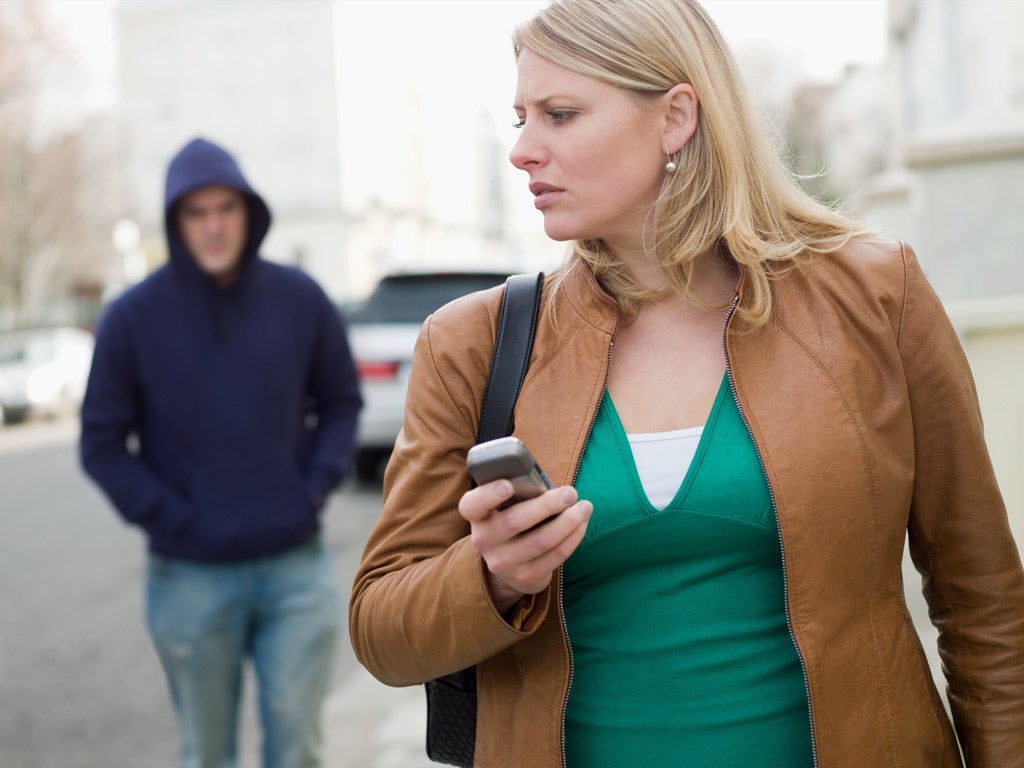
Your support helps us to tell the story
From reproductive rights to climate change to Big Tech, The Independent is on the ground when the story is developing. Whether it's investigating the financials of Elon Musk's pro-Trump PAC or producing our latest documentary, 'The A Word', which shines a light on the American women fighting for reproductive rights, we know how important it is to parse out the facts from the messaging.
At such a critical moment in US history, we need reporters on the ground. Your donation allows us to keep sending journalists to speak to both sides of the story.
The Independent is trusted by Americans across the entire political spectrum. And unlike many other quality news outlets, we choose not to lock Americans out of our reporting and analysis with paywalls. We believe quality journalism should be available to everyone, paid for by those who can afford it.
Your support makes all the difference.The number of muggings and robberies soared last year, prompting fears that the economic downturn – and the number of gadgets carried by people – has fuelled a wave of street crime.
Bag thefts, pickpocketing and other instances of "theft from the person" increased by 10 per cent to almost 100,000 in England and Wales. Robberies increased by 3 per cent, with a 9 per cent surge of knifepoint muggings, as attackers targeted smartphones, iPods, credit cards and cash.
The rise in street crime – the biggest leap for a decade – will alarm police as they prepare for an influx of foreign visitors this summer for the Olympics. It also reflects the violence on the streets during last year's riots in London and other English cities.
The trend contrasts with an overall fall in offences reported by the Office for National Statistics (ONS), which has responsibility from the Home Office for calculating crime statistics.
According to the separate Crime Survey for England and Wales, numbers of victims of "personal acquisitive crime" went up by 13 per cent last year to 1.9 million. They include people who were pickpocketed, had handbags snatched or had bicycles stolen.
Thefts from homes and other buildings increased by 5 per cent – a rise partly blamed on thieves stripping metal from church roofs.
The survey also said thefts to and from vehicles rose by 2 per cent and burglaries increased by 1 per cent.
Serious sex crime went up by 2 per cent, which marked a slowing in rates of increase in recent years.
The survey calculated that 4,043,339 crimes were reported last year, which was a drop of 3 per cent on 2010.
Deputy Chief Constable Douglas Paxton, spokesman for the Association of Chief Police Officers, praised officers for making progress in driving down crime rates. He welcomed a sharp reduction in instances of criminal damage.
However, he said, "There have been increases in opportunistic thefts and robbery offences, and police forces are continuing their efforts to work with partners and the public to prevent these offences."
Nick Herbert, the Policing minister, said: "Today's figures show that overall crime is stable but there are variations between offences and police-force areas and crime remains too high.
But he added: "Police forces and local agencies need to focus on the areas of concern, and from November this year police and crime commissioners will be elected with a mission to drive down crime."
Join our commenting forum
Join thought-provoking conversations, follow other Independent readers and see their replies
Comments